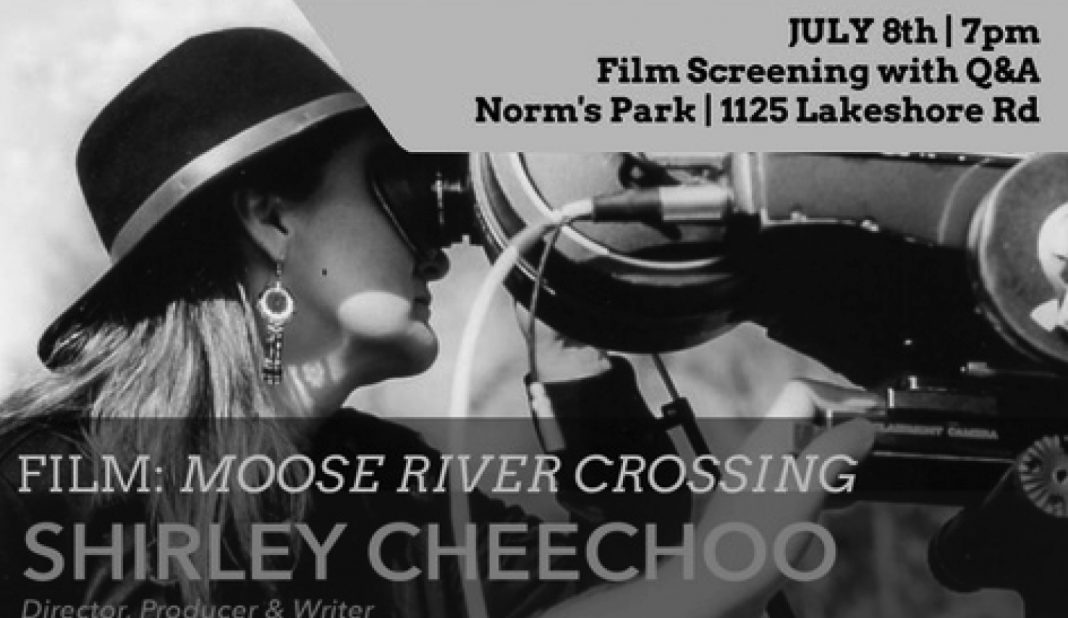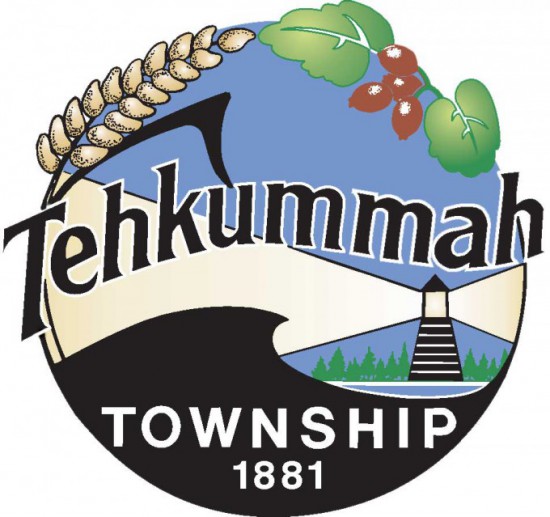KAGAWONG—Six indigenous people meet at a train station to go to their residential school reunion, but a train derailment leaves them stranded and provides them time to catch up and try to come to terms with the hardship they faced and the time that followed. Pain, torture, love, rape, truth and laughter bring the group’s past, present and future together to help them “survive the warzone” and become residential school warriors.
The ‘Moose River Crossing’ film screening and question and answer period took place at Norm’s Trailer Park in Kagawong, Saturday July 8 at 7 pm.
The film screening was part of the theme of environment, land-use history and its connection to Truth and Reconciliation presented by 4Elements Living Arts (4E). The project is supported many community partners: Old Mill Heritage Centre, the Township of Billings, the Billings Recreation Committee, Billings Public Library and 4E themselves. The project is funded by Canada 150, Ontario 150, Celebrate Ontario and the Ontario Arts Council. The Film was also sponsored by Kakekalanicks, an indigenous consulting company that specializes in promoting indigenous art and artists.
The film’s writer, producer and director, Shirley Cheechoo, introduced her film and stayed for a talk and question and answer period after the screening. Ms. Cheechoo is Cree from James Bay. She is a multi-award winning filmmaker and the first person from a First Nation to write, produce, direct and act in a feature-length dramatic film in Canada. Ms. Cheechoo was five when she was placed in the residential school system.
Richard Lathwell, president of 4E, introduced Ms. Cheechoo and her film.
“I have had the honour of being a fan of Dr. Shirley Cheechoo for many, many years in various organizations, first at Debajmuhjig Theatre Group and now 4Elements,” Mr. Lathwell said.
“The film you are going to see was made at Weengushk Film Institute in 2013. The whole film was made on Manitoulin Island; the train station you see in the film was made at Weengushk for film,” Ms. Cheechoo said. “I have been working with Truth and Reconciliation for about 40 years, helping youth and my people through de-colonization; all of Canada needs to be de-colonized. My work has always been based on that and not to blame anybody, but to tell a story so that people can see the healing from it.”
During the Q&A Ms. Cheechoo was asked about de-colonization and how she defined it
“When we were taken away to residential school we were forced to become white people. We lost our language, we lost our culture, we lost everything; even how to be loving and being parents, everything was taken away. Now we are trying to bring this all back to our people. De-colonization is also for white people so they can understand what the journey was and help with the journey of healing as well.”
Ms. Cheechoo spent her years moving between residential schools in Moose Factory, Brantford and Sault Ste. Marie. She said she would get six weeks in the summer to come home and barely have time to reconnect with parents and siblings who were in separate schools before being “shipped off” again.
The concept of coming through the residential school system was like surviving a warzone was very apparent to the audience and was addressed by Ms. Cheechoo.
“I struggled a lot with the word survivor when I was writing. At the time that was how I saw myself. Now I don’t see myself as a survivor anymore, I see myself as a warrior,” she said. “We should be called residential school warriors because we are still here; we are still fighting. Every day we fight. When you say ‘survivor’ it has a negative connotation and it affects family under me. Hey, take that negativity and it destroys even more family. If we call our survivors warriors, it gives a positive impression and helps the next generation.”
At least four members of the audience were from Southern Ontario and told the crowd they had never heard of residential schools or any of the history surrounding them. Ms. Cheechoo told the audience nine out of 10 people from southern Ontario know nothing about residential school history.
Initially, ‘Moose River Crossing’ was written as a play. According to Ms. Cheechoo, during the Feature Film Program at Weengushk Film Institute, a filmmaker submitted a screenplay and received funding for it. When he learned the students would be working on the film, he pulled his screenplay and the funding went along with it. She said a feature film still had to be made for the institute to receive their grant money, so Ms. Cheechoo adapted her play into a film.
Two of the actors in the film are from Manitoulin Island: Cherilyn Panamick and Matthew Manitowabi. The other actors came from Sudbury and Toronto, according to Ms. Cheechoo.
Ms. Cheechoo works with truth and reconciliation on her own and has for over 40 years. She said she tries to educate the public about the whole experience she went through, as well as educating the students at Weengushk Film Institute.
“To reconcile, we have to start doing things together. I’m surprised I don’t see any Native people here tonight. That is part of reconciliation, for us to all sit together and talk or watch a film like this,” Ms. Cheechoo said.
“How do we do that?” an audience member asked.
Her answer: “Invite them.”




